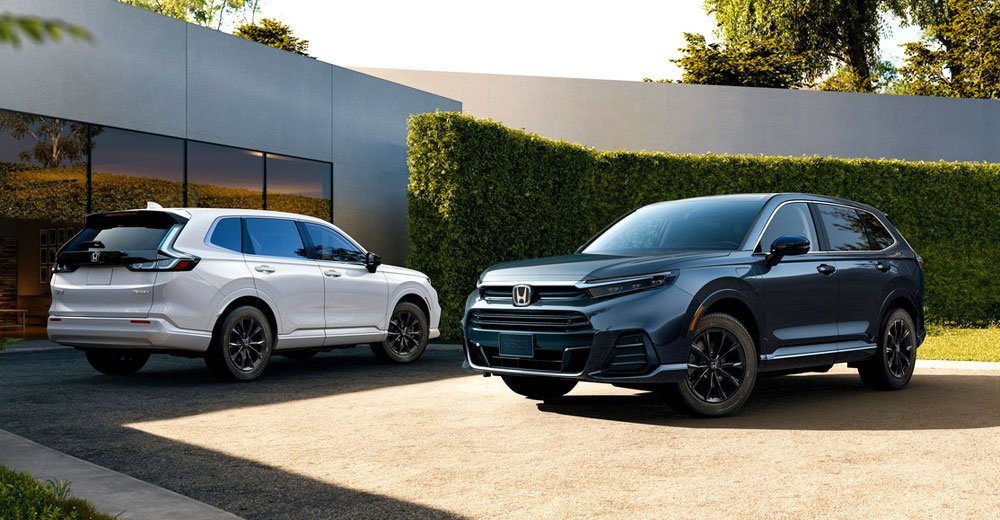[ad_1]
Honda made a groundbreaking announcement on Tuesday, introducing the first hydrogen fuel cell consumer vehicle for America – the CR-V e:FCEV. This vehicle combines a hydrogen fuel cell system with plug-in charging capability, offering an impressive EPA driving range rating of 270 miles. Honda plans to make these vehicles available for customer leasing in California later this year, with an initial target of selling 2,000 units annually.
Co-developed with General Motors, the CR-V e:FCEV features a new fuel cell system made in Michigan, offering improved durability, higher efficiency, and lower cost compared to Honda’s previous-generation fuel cell system. Produced in Ohio, the vehicle also includes a 110-volt outlet that can deliver 1,500 watts of power, allowing users to easily power small home appliances, portable air conditioners, power tools, and camping equipment.
One of the key improvements highlighted by Honda is the doubled durability of the fuel cell system, achieved through the application of corrosion-resistant materials and controlled suppression of deterioration. The low-temperature performance of the system has also been enhanced, further solidifying the vehicle’s reliability.
Despite these advancements, there are lingering challenges for fuel cell vehicles, particularly in terms of infrastructure. The cost of building out a hydrogen fueling infrastructure is significantly higher than establishing EV charging points. Currently, there are far fewer hydrogen fueling stations compared to EV charging points, making it a challenge for fuel cell cars to gain market success.
Fuel cell vehicles have struggled to gain traction in the mainstream market, with issues surrounding the reliability and uptime of fueling infrastructure. While Honda’s CR-V e:FCEV serves as a demonstration of the technology’s capabilities, it is not expected to be a mass-market product. The vehicle is positioned as a testbed to refine the fuel cell technology before potentially integrating it into more expensive platforms, such as heavy trucks.
Looking at the broader landscape of electric vehicles, battery-electric cars have seen much broader adoption and acceptance compared to fuel cell vehicles. The sales numbers reflect this trend, with battery electric cars outselling fuel cell cars by a significant margin. The future of fuel cell technology may lie more in heavy vehicles like long-haul trucks, where the advantages of fuel cell systems, such as faster refueling times, can be better leveraged.
In conclusion, while the introduction of the CR-V e:FCEV represents a significant step forward in the development of hydrogen fuel cell vehicles, there are still challenges to overcome in terms of infrastructure and market acceptance. The success of fuel cell technology in the automotive industry may hinge on its adaptability to specific use cases, such as heavy trucks, where the unique advantages of fuel cell systems can make a more significant impact. Honda’s entry into the hydrogen fuel cell market with the CR-V e:FCEV is an important milestone, showcasing the potential of this technology for the future of sustainable transportation.
[ad_2]
Related Products
[products limit="3" columns="3"]


